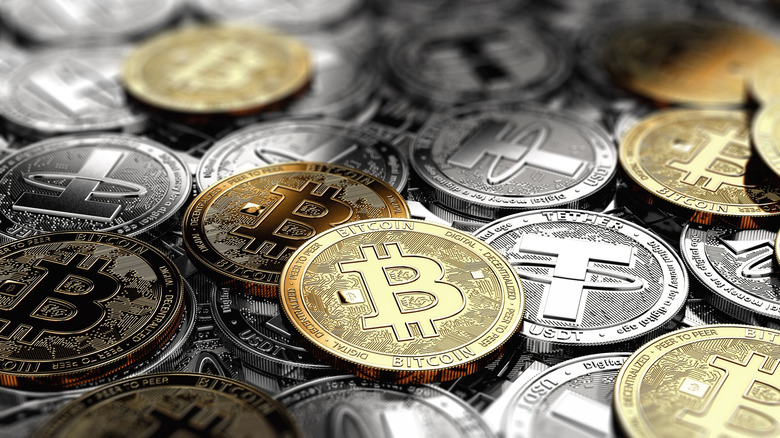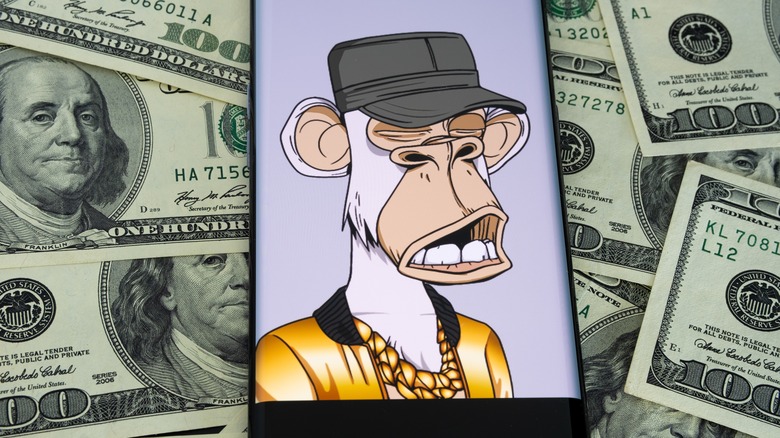Have Restaurants Cashed Out On The Cryptocurrency Craze?
Bored Ape Yacht Club isn't actually a boat club for apes — it's the branding title for an NFT collection featuring cartoon monkeys. Though NFTs are notoriously confusing, it's easiest to think of them as digital collectible art on the Ethereum blockchain, explains Bored Ape Yacht Club.
But just months after its opening, Bored Ape Yacht Club's restaurant has already decided to jump ship and return to a dollars-only model. Per Hypebeast, the restaurant, Bored & Hungry, is a 1,700-square foot fast-food establishment in Long Beach, California that opened in mid-April. Andy Nguyen, a Los Angeles restauranteur, opened the location as an experiment in the branding potential of the Bored Ape Yacht Club empire and NFTs writ large.
Nguyen decorated the restaurant with images of his own Bored Ape, #6184, and two "Mutant Apes," an offshoot of the original Bored Ape. He purchased Ape #6184 for $267,000. To promote the restaurant's integration of cryptocurrency, Nguyen had all prices shown in USD as well as several different blockchain-backed currencies. Then, after two months of accepting crypto payments, the restaurant stopped accepting any form of digital currency and is back to only accepting payment the old-fashioned way. This incident begets larger questions about the viability of cryptocurrency-backed restaurants.
Is crypto too volatile to be trusted?
So, why did the crypto-inspired restaurant stop accepting its own favorite type of currency? The answer lies in the volatility of the cryptocurrency market. Bitcoin recently went through a crash, falling about 70% from its high point, per Bloomberg. After Bitcoin fell, lesser-known cryptocurrencies followed suit. In the finance world, this is known as a "bear market," per Investopedia. As the crypto coins fall in value, they're worth less and less — and no restaurant wants to accept worthless money.
It's unclear if or when the restaurant will return to accepting crypto payments, according to the Los Angeles Times. Even customers who are crypto-enthusiasts themselves said they were lukewarm about using crypto to buy food: "Yes, Ethereum is a currency in a way where you can exchange NFTs and stuff ... but as far as buying food and all that, maybe not," customer Marc Coloma told the Times. He sees Ethereum as more something that you collect and hold onto rather than spend willy-nilly. You wouldn't use gold or jewelry to pay for your meal at McDonald's.
Meanwhile, the skeptics at The Takeout were already wary of the idea of using crypto to pay for burgers and fries, citing the difficulty of accepting various versions of cryptocurrency while paying via cash or credit card is commonplace and seamless. Why reinvent the wheel?

